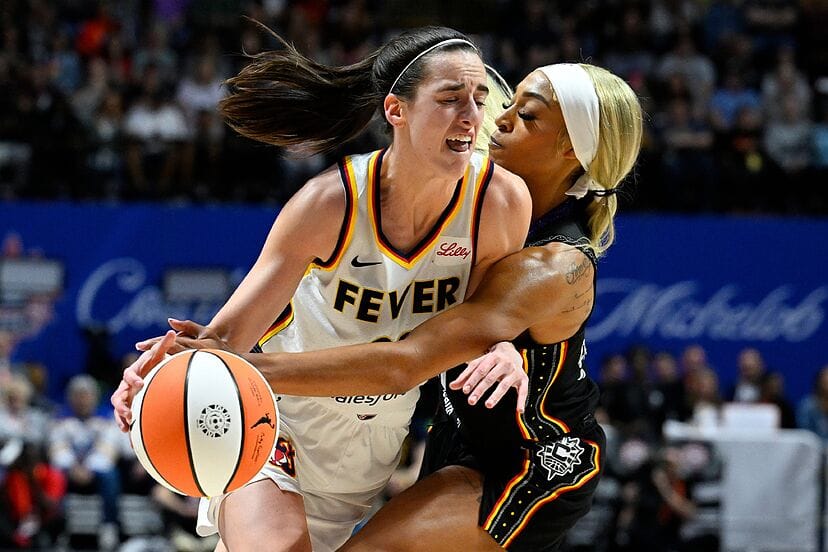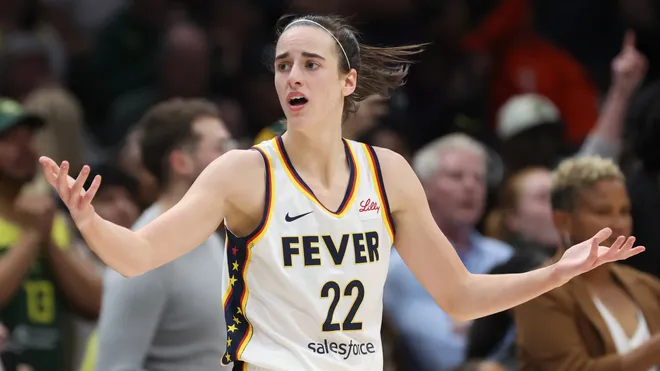Why are so Many Black Women Hating on Caitlin Clark?

Does race still play a part in modern day sports? Let’s take a deep dive.
The meteoric rise of Caitlin Clark, the NCAA’s all-time leading scorer who recently joined the WNBA, has sparked a conversation about race and representation in women’s basketball. Comments by some such as Jemele Hill and Sunny Hostin suggesting Clark’s popularity is solely due to “white privilege” and “pretty privilege” raise important questions. However, let’s explore why, for the sake of the WNBA’s future. It could be the case that solidarity would be more beneficial than division amongst all women, whether they’re in the WNBA or not.
Beyond Headlines: Clark’s Impact on the WNBA
Clark’s arrival in the WNBA has undeniably generated significant buzz:
- Increased Viewership: Early indications suggest Clark is drawing new audiences to the WNBA, potentially leading to increased media coverage and fan engagement.
- Sponsorship Deals: Clark’s star power has already secured her a lucrative endorsement deal with Nike, potentially paving the way for more lucrative sponsorships for the entire league.
- Improved Travel Conditions: The Indiana Fever, Clark’s team, reportedly upgraded to charter flights thanks to the increased revenue generated by her popularity.
Sisterhood Over Shade: Why Black Women Should Celebrate
Black women have been pioneers in the WNBA, paving the way for Clark’s success.

Here’s why celebrating her achievements benefits all women in the league:
- Rising Tide Lifts All Boats: Increased viewership and sponsorship deals benefit all WNBA players, potentially leading to higher salaries and better overall league conditions.
- Breaking Gender Barriers: Clark’s popularity helps break down gender barriers in sports, inspiring a new generation of young girls to pursue basketball regardless of race.
- Diversity and Strength: The WNBA thrives on diversity. Clark’s success alongside established Black stars like Diana Taurasi and Candace Parker showcases the league’s depth and talent.
Addressing the “Privilege” Narrative: More Than Skin Deep
Comments suggesting Clark’s success solely stems from race are reductive and potentially harmful:
- Hard Work and Skill: Clark’s talent and dedication are undeniable. She has honed her skills for years, becoming one of the most exciting young players in the sport.
- Marketing Strategies: The Indiana Fever likely plays a role in marketing Clark, leveraging her charisma and talent to draw in new fans.
- The Power of Narrative: Media coverage plays a role, but Clark’s electrifying play on the court ultimately keeps fans engaged.
Moving Forward: Building a Stronger WNBA for All
Instead of focusing on perceived slights, women everywhere should use this moment to build a stronger WNBA:
- Mentorship and Support: Black veterans can mentor Clark, fostering a culture of collaboration and shared success.
- Collective Bargaining Power: A united WNBA can leverage Clark’s popularity to push for improved salaries and benefits for all players.
- Breaking Down Barriers: Together, all players can work towards breaking down gender stereotypes and ensuring the WNBA receives the respect and recognition it deserves.
Conclusion: Celebrating Excellence, Together
The WNBA deserves a brighter future, and Caitlin Clark’s arrival presents a golden opportunity. Instead of focusing on race, let’s celebrate her talent and the positive impact she’s having on the league. By women uniting for a common goal — a thriving WNBA where all players can excel — they can create a legacy that benefits everyone. Black women have been instrumental in building this league, and their continued support and leadership are crucial as the WNBA enters a new era. Hopefully female basketball players at all levels move forward together, celebrating excellence on the court, and paving the way for a brighter future for women’s basketball.
Why do you think Clark’s most vocal critics are black women? Is it jealousy or something else?





